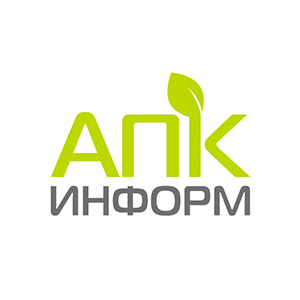Kazakhstani regions specializing in sunflower cultivation may lose up to 40% of the oilseed crop due to drought. According to an APK-Inform correspondent in Almaty, this forecast was voiced by the head of the National Association of Oilseed Processors (NAPMC) Yadykar Ibragimov at a press conference on 11 August.
“Our specialists have traveled to the East Kazakhstan region, Pavlodar and Abai regions - these regions account for more than 50% of the sunflower crop in Kazakhstan. In these regions, there is a drought: during the growing season for 1.5-2 months there was no rain and the temperature was above the norm. In this regard, NAPMK reduced the preliminary estimate of the gross harvest of sunflower seeds in these regions by 30-40,” the head of NAPMK said.
Taking into account this indicator, the Association has updated the forecast for the sunflower harvest in Kazakhstan in 2023 - it is expected that it will not exceed 850 thousand tons. Thus, compared to last year, the gross collection will decrease by 17%.
Ya. Ibragimov noted that it is about the assessment of NAPMK, as official statistics traditionally show overestimated figures. According to processors, the sunflower harvest in Kazakhstan in 2022 amounted to about 1.27 million tons (according to official statistics - 1.3 million tons).
A similar situation is developing with the statistics on the reserves of oilseeds in the country. According to NAPMK, by mid-July, sunflower residues in the Republic of Kazakhstan amounted to about 260 thousand tons (including about 157 thousand tons - at oil plants, the rest - from farmers and other market participants). At the same time, according to official statistics, by July 1 this year. in Kazakhstan, there were 537 thousand tons of this oilseed (against 420 thousand tons as of the same date last year).
On August 10, at a meeting of the Interregional Commission, the issue of extending restrictions on the export of sunflower seeds from Kazakhstan was raised. The Bureau of National Statistics of the Republic of Kazakhstan was instructed to prepare up-to-date information on the availability of sunflower seeds in the country within two weeks, and then the government will return to discussing restrictions on the export of this product.
Y. Ibragimov stressed that any decisions should be made based on reliable data, because this issue is directly related to ensuring the country's food security. With a sharp decline in the yield of sunflower seeds and its uncontrolled export from the country, prices for sunflower oil will increase and there will be a shortage of high-protein feed (sunflower meal/cake).

 Trading platform
Trading platform 
 Monitoring
Monitoring  Express applications
Express applications 
 Fork Work
Fork Work 
 Service
Service  News
News  Directory
Directory 
